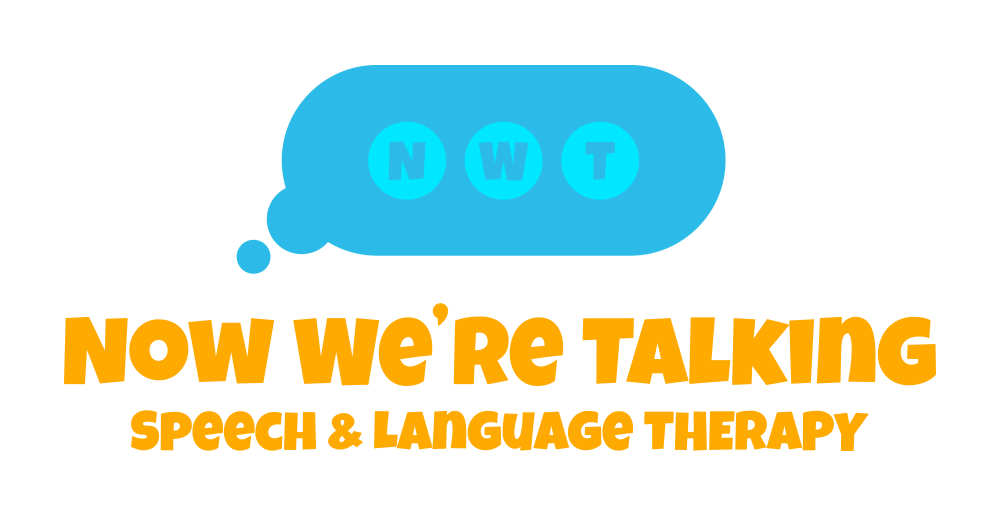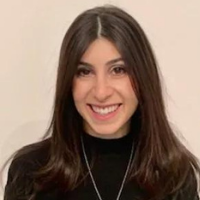Speech-Language and
Orofacial Myology Services
Evaluation and Treatment of Pediatric Patients
Expressive Language
Receptive Language
- Global Developmental Delays
- Articulation/Phonological Disorders
- Autism Spectrum Disorder
- Auditory Processing Disorder
- Neurological Disorders/Motor-Speech Disorders
Oral-Motor/Feeding
Pragmatic Language Impairment
Facilitated Play-Dates/Sibling Skills
Social Skills/Play Groups
- Tongue Tie
- Resting Oral Posture
Augmentative and Alternative Communication (AAC)

Better Communication
Social Skills
Studies that have followed the development of children across their lifetime have shown that children and adults with social communication difficulties often have difficulties establishing and maintaining long-term friendships with higher correlations to social isolation from middle primary age, anxiety disorders, and depression. This means the identification and development of these skills are vital to support a child’s social and emotional well being.
- Childhood
Apraxia of Speech
In order for speech to occur, messages need to go from your brain to your mouth. These messages tell the muscles how and when to move to make sounds. When a child has apraxia of speech, the messages do not get through correctly. The child might not be able to move their lips or tongue in the right ways, even though their muscles are not weak. Sometimes, the child might not be able to say much at all.
Some Signs and Symptoms
- Does not always say words the same way every time
- Tends to put the stress on the wrong syllable or word
- Distorts or changes sounds
Can say shorter words more clearly than longer words.
- Difficulty with fine motor skills
- Delayed language
- Problems with reading, spelling, and writing.
- Who is a late talker?
Late Talkers
Risk factors may include the following
A “Late Talker” is a toddler (between 18-30 months) who has good understanding of language, typically developing play skills, motor skills, thinking skills, and social skills, but has a limited spoken vocabulary for his or her age. The difficulty late talking children have is specifically with spoken or expressive language. This group of children can be very puzzling because they have all of the building blocks for spoken language, yet they don’t talk or talk very little.
The following guidelines can help you determine if your child’s vocabulary is appropriate for his or her age. If your child has not yet reached these milestones, he or she should be seen by a speech-language pathologist:
18 month olds should use least 20 words, including different types of words, such as nouns (“baby”, “cookie”), verbs (“eat”, “go”), prepositions (“up”, “down”), adjectives (“hot”, “sleepy”), and social words (“hi”, “bye”).
24 month olds should use at least 100 words and combine 2 words together. These word combinations should be generated by the child, and not be combinations that are “memorized chunks” of language, such as “thank you”, “bye bye”, “all gone”, or “What’s that?”. Examples of true word combinations would be “doggie gone”, “eat cookie”, or “dirty hands”.
Let’s Change Things
Get in touch with us to see how we can help!
“The therapist you wish you found years ago”
Our daughter Hannah started weekly sessions with Dana when she was 3.5 years old. Hannah had a significant speech delay and we had seen a number of therapists until then. In our opinion, none of them had a significant impact. After starting with Dana, my daughter began making steady progress, both in speech and language. Her pronunciation started to become a lot clearer; both her vocabulary and ability to comprehend and follow stories started to quickly expand as well. I attribute this to Dana’s experience and expertise, and her personality and approach with children….She is very knowledgeable and understood my daughter’s developmental curve. Dana also listened to my own observations and concerns and incorporated them into her strategy….She gave tips to me and to Hannah’s teachers on how to carry over her tactics at home and in the classroom….Dana has not just been a speech therapist to our child but an educator and a kind, nurturing and fun friend. We will always be grateful for her energy, warmth and dedication which truly made a difference in Hannah’s development
Dana is the most devoted therapist anyone could ever be lucky to find. She is professional, always comes to speech sessions with a plan that includes play and work. The way she mixes the two is a talent, as she keeps our son engaged and gets great results. She is flexible and easy-going, always understanding to changing schedules for our busy family. Over the last year we have seen more results from her sessions with our son than we ever thought we could. She is part of our family and someone we feel has been a MAJOR part of the team to help our son find his voice and his confidence. Dana goes beyond the call of a speech therapist and helps guide us as parents, too. She supports us on so many levels, and is always there without hesitation. I could easily fill this page with positive comments, she’s the best! We have seen several therapists, no one comes close to the rapport Dana creates with her kids and the results she gets with her playful sessions.
Dana has worked with our son Max on his speech and language issues for the past two and a half years. During that time we have seen fantastic improvements in his communication skills and Dana has played an enormous role in that. Her caring and patient nature means that Max loves his ‘Dana Days’ and her resourcefulness has meant that even after a long day in kindergarten, Dana is able to maintain his interest and concentration with a variety of games, play and activities- no easy feat believe me!!! In addition, she always keeps us, his parents, updated on the work she is doing with him and advises us on techniques to supplement her work and bring her therapy fully into his day-to-day life. In short, Dana is a vital part of ‘Team Max’ and has become a hugely important part of Max’s life. We wouldn’t have seen the improvements in his language skills that we have without her input, and we recommend her therapy unreservedly.
Our 4 year old son Baron has been with Now We’re Talking for the past 2 years. From day one, Dana has been an enormous support to our family. Watching Baron struggle with his expressive language was difficult for us as parents but Dana taught us to recognize his language strengths despite his inability to communicate clearly. Dana provides us with up to date progress reports, communicates with Baron’s other service providers and teaches us strategies on how to promote his language at home. Her patience and enthusiasm is apparent during each session. We are beyond pleased to see the progress Baron has made and will continue to make with Dana.
I can’t thank the speech therapists at Now We are Talking enough for all of their work with my son. When we first started he was barely saying two word phrases and he is now making complete sentences and fully comprehending information. They customized his sessions to keep him engaged by incorporating the things that he liked into each session. In addition, they taught me and my husband many strategies to help our son overcome some of his challenges. We would highly recommend them to anyone looking for speech therapy.

